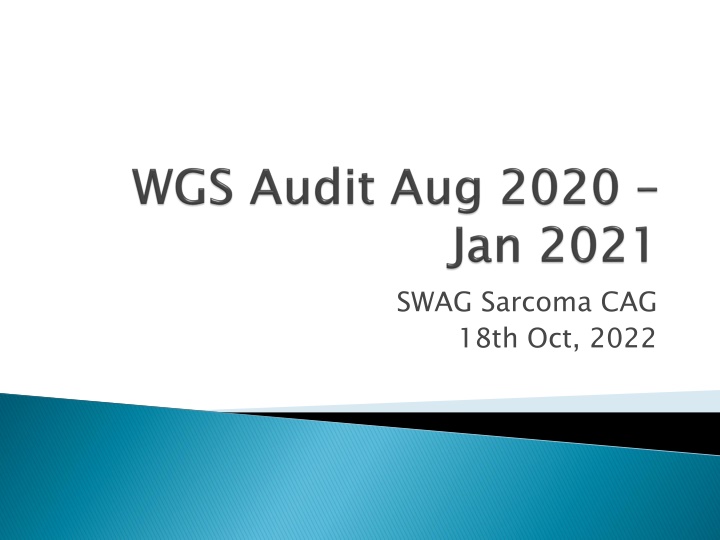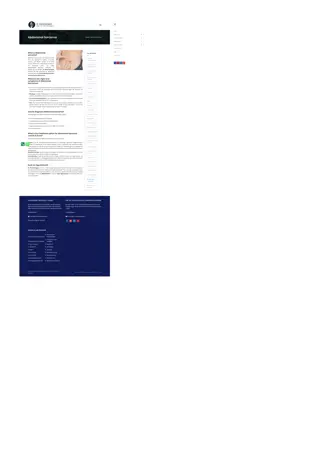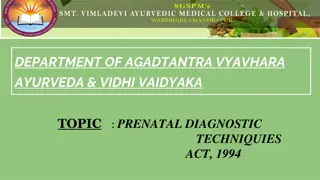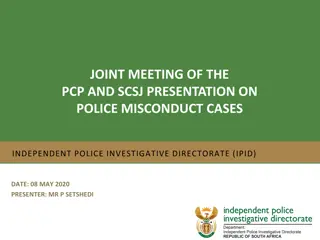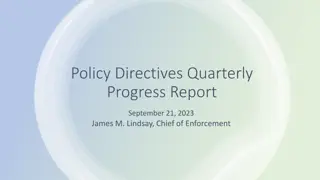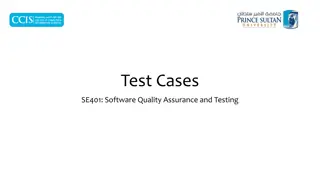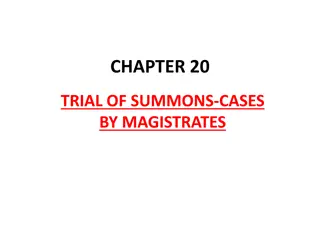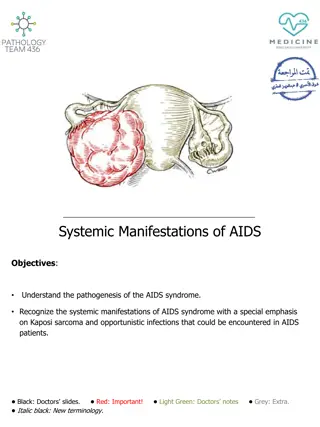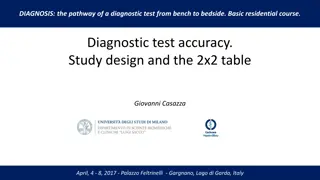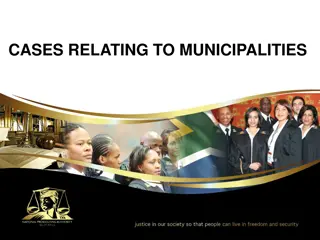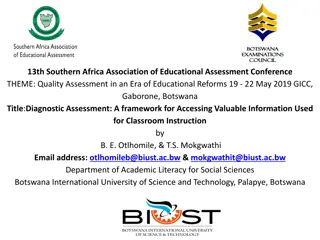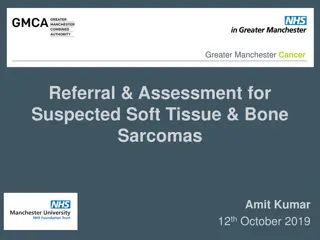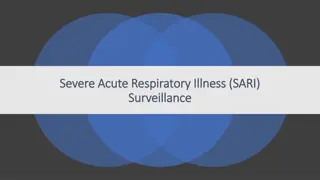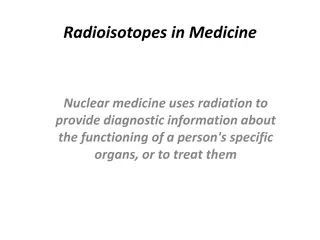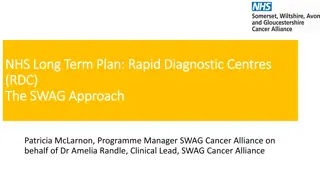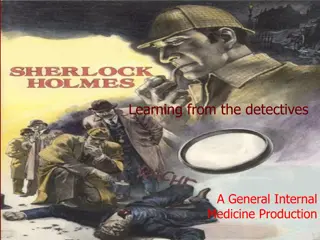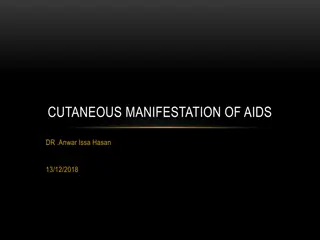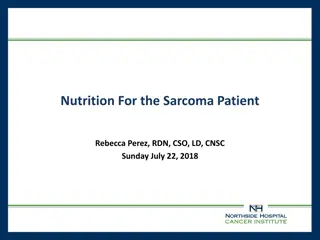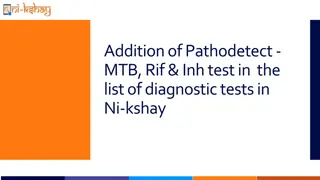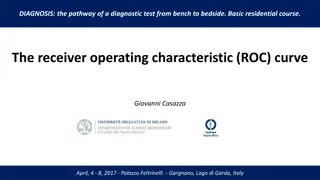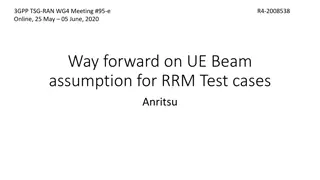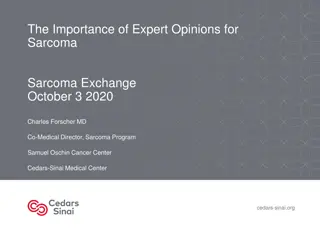Insights on New Sarcoma Cases and Diagnostic Processes
This data provides a detailed overview of 400 new sarcoma cases, emphasizing frozen core collections, MDT discussions, and outcomes. It highlights different sarcoma types, locations, core biopsy processes, genetic findings, and challenges faced in diagnosis and reporting. The images depict diverse aspects of sarcoma management, including altered diagnoses, genetic confirmations, and the complexity of indolent LG histology. The labor-intensive nature of the diagnostic process, critical considerations in handling resection specimens, and mechanisms for result communication are also addressed.
Download Presentation

Please find below an Image/Link to download the presentation.
The content on the website is provided AS IS for your information and personal use only. It may not be sold, licensed, or shared on other websites without obtaining consent from the author.If you encounter any issues during the download, it is possible that the publisher has removed the file from their server.
You are allowed to download the files provided on this website for personal or commercial use, subject to the condition that they are used lawfully. All files are the property of their respective owners.
The content on the website is provided AS IS for your information and personal use only. It may not be sold, licensed, or shared on other websites without obtaining consent from the author.
E N D
Presentation Transcript
SWAG Sarcoma CAG 18th Oct, 2022
2 years of frozen core collection 25thAug 2020 now All new sarcoma diagnoses discussed at MDT taken from CNS triage list / MDT outcomes 400 cases in this period (190-200 / year) 191 HG 378 new diagnosis 22 recurrence 209 LG
Skin 125 (34%) Head and neck 12 (3%) Thorax 25 (6%) Arm 19 (5%) Breast 32 (8%) Trunk 29 (7%) Abdo / Pelvis 25 (6%) Gynae 28 (7%) RPS / GU 33 (8%) Lower limb 71 (18%) Lower limb 71 (18%)
400 new sarcoma cases 63 frozen cores taken 5 not appropriate 63 frozen cores taken 58 cores in eligible pts 13 not suitable for testing: 10 insufficient DNA 2 test cases 1 left overnight 4 died 1 left area 29 consented 13 results returned 11 patients awaiting consent
1 changed management (altered diagnosis) 5 no actionable mutations 7 genetic confirmation of diagnosis Synovial ASPS EMC MLS 1 1 1 4 SS18-SSX2 fusion ASPSCR1-TPE fusion EWSR1-NR4A3 FUS-DDIT3
154 pts not appropriate indolent LG histology Only 58 of 246 eligible patients had frozen core 99 Biopsy / surgery at centres outside Bristol 33 Biopsy / surgery at BRI 30 non-extremity 7 - RPS 17 no clear reason
16 weeks for the 13 cases reported thus far 6 of the 16 of the outstanding reports were requested > 6 months ago Prioritised on request
Labour intensive process Ed / Ben taking 2nd biopsy Path lab processing time Consent process GLH analysis time Difficult to capture all eligible cases Logistics of using resection specimens Interpretation of results (GTAB) Mechanism to feed results back to patient
Pathologists to report NCC / cellularity Highlight patients with insufficient DNA on biopsy Streamline pathway for resection specimens Options for RPS patients? Keep spreadsheet and approach patients during follow up Consider pathway for biopsy / surgery at BRI
Genetic testing focussed at important mutations Can be performed on archived biopsy samples Requested upfront for all newly diagnosed metastatic patients All metastatic patients on FU have been screened and NGS requested Only funded treatment is larotrectinib for NTRK fusion (but some data for other drugs)
